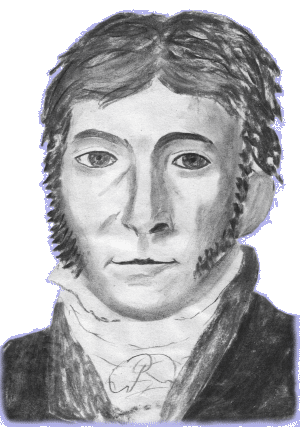
| |

Carl Friedrich Gauss
Carl Friedrich Gauss lived around 1800 in present-day Germany. He was one of the most intelligent and productive mathematicians ever and made contributions in every mathematical field.
When Gauss was 18, he found a way to construct the regular with seventeen sides, using only a straightedge and a compass. This had been thought impossible until then.
Gauss had a special love for Number Theory. In a book he wrote, he developed a special algebra called modular arithmetic.
He also became known as an important astronomer when he found a way to calculate the paths of planets with a minimum of known data. Through his calculations the newly discoverd planet Ceres, which had gotten out of sight, could be found again.
Gauss was interested in applied mathematics too. He was for example the first to invent the telegraph and together with a friend he constructed one.
In addition to his published works, he also kept a very interesting correspondance and a diary. His diary, which was found about 50 years after his death, is full of mathematical discoveries, some of which earlier mathematicians had already discovered, but most of them stated results which other mathematicians redescovered after him. For example, he discovered a first non-Euclidean geometry while thinking about the consequences there would be if a line had more than one parallel line going through a given point. He already noticed then that this is a better starting point to describe the the physical space.
Gauss brought up his daughters in the traditional way. He was, however, in correspondance with the mathematician Sophie Germain whom he admired very much. He was impressed that for her mathematics were important enough to go through the difficulties a woman had just to be able to study them. He suggested to award her with an honorary doctorate, but unfortunately she died shortly before. Several years later, the University of Göttingen honored Sophia Kowalewskaja with the first math Ph.D. ever given to a woman.
